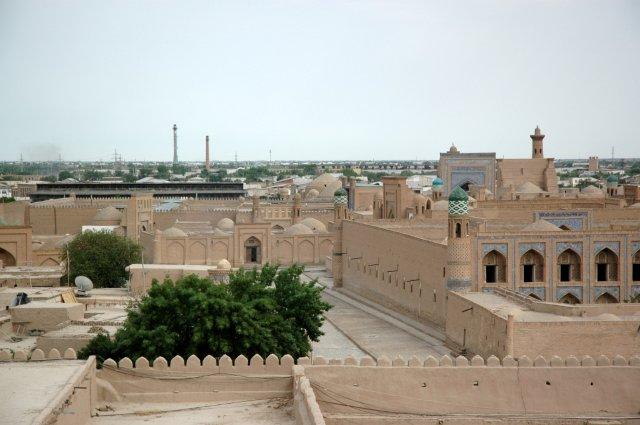 Tashkent/Geneva, 9 November 2011 — An expert workshop to enhance understanding of the Convention on Environmental Impact Assessment in a Transboundary Context, and in particular the Convention’s Protocol on Strategic Environmental Assessment, opened in Tashkent, Uzbekistan, today. The workshop, which will run from 9 to 12 November 2011, brings together 20 experts from Uzbek ministries, State committees and regional authorities to discuss opportunities for using strategic environmental assessment (SEA), especially in domestic land-use and sectoral planning in Uzbekistan.
Tashkent/Geneva, 9 November 2011 — An expert workshop to enhance understanding of the Convention on Environmental Impact Assessment in a Transboundary Context, and in particular the Convention’s Protocol on Strategic Environmental Assessment, opened in Tashkent, Uzbekistan, today. The workshop, which will run from 9 to 12 November 2011, brings together 20 experts from Uzbek ministries, State committees and regional authorities to discuss opportunities for using strategic environmental assessment (SEA), especially in domestic land-use and sectoral planning in Uzbekistan.SEA offers a good methodology to promote and improve planning processes in general, and the integration of environmental aspects into policies, plans and programmes in particular. The objective of the workshop is to help participants to apply SEA methodology effectively in their daily work and to demonstrate how SEA can be applied to plans and programmes on diverse topics, and with differing dimensions and local conditions. The workshop also aims to raise awareness of what would be involved if Uzbekistan would choose to accede to the Protocol on SEA.
The four-day workshop is designed to improve the actors’ capacities to transpose and implement international principles, standards and good practice in SEA based on practical exercises. The workshop will be facilitated by two internationally recognized experts on SEA, who will share their experience and guide the participants through a complete SEA procedure on a hypothetical spatial development plan for a “special economic zone”.
The workshop is organized in cooperation with a Global Environment Facility/ United Nations Development Programme project — “Strengthening National Capacity in Rio Convention Implementation through Targeted Institutional Strengthening and Professional Development” — and is co‑funded by the United Nations Economic Commission for Europe (UNECE)-German Agency for International Cooperation Programme (GIZ), “Regional Dialogue and Cooperation on Water Resources Management”.
For further information, please visit www.unece.org/env/eia or contact:
Mr. Nick Bonvoisin
Secretary to the Espoo Convention
Tel: +41 (0)22 917 1193
E-mail: [email protected]
Note to editors
The Convention on Environmental Impact Assessment in a Transboundary Context, elaborated under the auspices of UNECE, was adopted at Espoo
(Finland) on 25 February 1991 and entered into force on 10 September 1997. The Convention now has 45 Parties. The Espoo Convention stipulates that its Parties shall assess the environmental impact of certain activities at an early stage of planning. It also requires States to notify and consult each other on all major projects under consideration that are likely to have a significant adverse environmental impact across borders. Uzbekistan is not a Party to the Convention.
More information about the Convention can be found at http://www.unece.org/env/eia/eia.htm.
The Protocol on Strategic Environmental Assessment to the Espoo Convention, signed by 35 Governments and the European Community in May 2003 in Kyiv, Ukraine, entered into force on 11 July 2010. To date, the Protocol has been ratified by 22 States and the European Union. Though negotiated by UNECE member States and signed by European Ministers of Environment, the Protocol is open to all United Nations Member States, upon approval by the Meeting of the Parties to the Protocol. Uzbekistan has not signed or acceded to the Protocol.
More information about the Protocol can be found at http://www.unece.org/env/eia/sea_protocol.htm.
The German Agency for International Cooperation or Deutsche Gesellschaft für Internationale Zusammenarbeit (GIZ) GmbH is an international cooperation enterprise for sustainable development with worldwide operations, which supports the German Government in achieving its development policy objectives. The Berlin Water Process was launched at the first “Water Unites” Conference (Berlin, 1 April 2008). The Process is an important part of the water and environment pillar of the European Union’s Central Asia Strategy. The Transboundary Water Management in Central Asia Programme is implemented by GIZ under the Berlin Water Process to optimize cooperation in the Central Asian water sector and improve the lives of people in the region.
More information about GIZ can be found at http://www.gtz.de/en/weltweit/europa-kaukasus-zentralasien/29994.htm.

